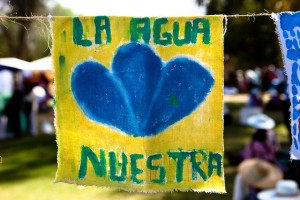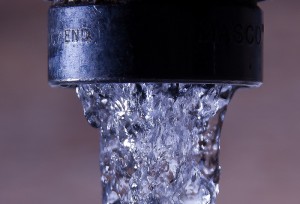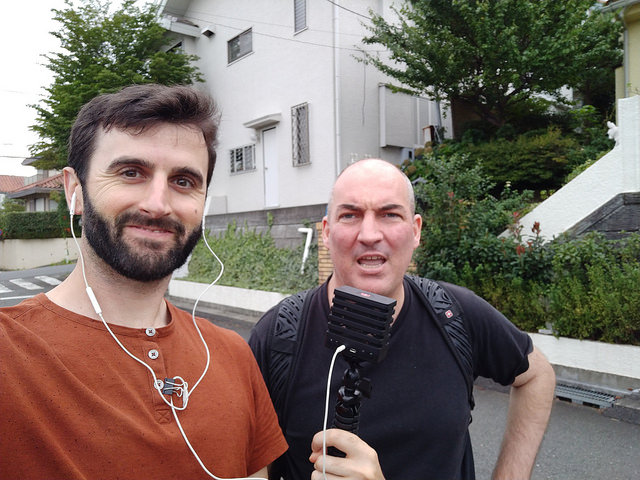In the eyes of Matthew Dons, whomever you are in this world, if you could make it over to Japan, you absolutely should be here. Why? Because Japan.
Today on the podcast, we take a long walk past the houses and trains, the fields and shrines, while looking at how things work here compared to anywhere else. There is learning but there is also a lot of laughing, mostly my own. Listen and enjoy.
Reminder also, Matthew is fighting to live longer, in a relentless battle against cancer; you can help his family afford this struggle by going to http://matthewdons.org and join the almost 900 people that have already donated.
Tag Archives: water
Marcela Olivera: After the Water Wars

The year was 2000 and on the streets of Cochabamba, Bolivia, people marched and demonstrated against the privatization of their water. In what became known as the water wars, the people on the streets emerged victorious, kicking out private water companies and re-instating the municipal system.
It was a huge moment in the war for who controls public resources, but as Marcela Olivera explains on the program today, it was only one battle is a very long process that is complicated and incomplete. But the core question remains as it did in 2000, who has the right to claim and control resources that are essential for human existence?
Making Private Water Public Again

Has your water utility been privatized in the past decade? Are today’s water companies really investing in infrastructure and improvements? How much democracy is there in your water bill? If any of these questions sound familiar, you probably care about who is in charge of bringing water to your home. And after all the promises that came with the privatization of water systems, many cities around the world have determined they want their water utility to be transparent, democratic, and public again. They call it, the re-municipalization of water. And on virtually every continent, it is taking root.
Today on the podcast, in an effort to understand what is happening with water companies and the re-municipalization of water, we hear from Dr. David McDonald of Queen’s University Canada. Over the past few years he has been studying and speaking about what is happening with water around the world. He co-authored the recent book “Remunicipalisation: Putting Water Back into Public Hands” which looks at case studies of from around the world. Cities like Paris, France; Hamilton, Ontario; Buenos Aries, Argentina; and Dar-es-Salaam, Tanzania. (available for free download)
Visit the Municipal Services Project for more background information and news on this issue. I also recommend their video below which is a great tool for better understanding what is going on with our water systems.
ctrp359 Fiji Water vs Fiji Government

Just over a year ago Anna Lenzer’s exposé on Fiji Water rocked the carefully crafted eco-friendly image the bottled water company once had. From the political, to the environmental, to human rights issues, the piece featured in Mother Jones Magazine showed that Fiji Water was not the company it claimed to be.
One year later Fiji Water is once again making waves, this time by their own initiatives; announcing the closing of their operation in Fiji followed by a re-opening less then 2 days later.
Anna Lenzer returns to the podcast to talk about what is behind these activities, and what else has been going on over the course of the year since her article was published.
The original piece in Mother Jones: Spin the Bottle
You can also read Anna Lenzer’s recent work on the Mother Jones Blog
We also mentioned Fiji’s announcements on their blog.
Fiji Water Closed?
 More than a year since the great investigative reporter Anna Lenzer published her article on the story behind Fiji water (also appearing as a guest on this podcast), the company announced this week it is closing its operation in Fiji. After a long relationship with the ruling military junta, the company announced on their blog on Nov 29:
More than a year since the great investigative reporter Anna Lenzer published her article on the story behind Fiji water (also appearing as a guest on this podcast), the company announced this week it is closing its operation in Fiji. After a long relationship with the ruling military junta, the company announced on their blog on Nov 29:
In Friday’s budget (11.26.10), the Fiji government announced that it will impose a 15-cent per liter tax on bottled water at locations where more than 3.5M liters per month are extracted. FIJI Water, which currently pays 1/3 of a cent per liter, is the only bottled water producer in Fiji affected by the increased tax; bottlers who extract less than this monthly limit will continue to pay about 1/10 of a cent, or 10,000% less tax than FIJI Water.
This new tax is untenable and, as a consequence, FIJI Water is left with no choice but to close our facility in Fiji, effective Monday, Nov. 29, 2010. We are saddened that we have been forced to make a business decision that will result in hardship to hundreds of Fijians who will now be without work.
They went on to refer to the government of Fiji and the terrible state the country is in:
The country is increasingly unstable, and is becoming a very risky place in which to invest.
24 Hours later the company makes a new announcement explaining that after discussions with the government, its factory will reopen:
Through our discussions, we have also agreed to comply with Fiji’s new water tax law……Moving forward, FIJI Water is committed to working with the Fijian government, and remains dedicated to helping the country’s economy and its people.
An odd turn of events, first that they decide yesterday, after more than a year of dealing with an undemocratic government with a questionable human rights record, that they had finally reached their breaking point. Then that after one day of discussions, the government is not as bad as they explained the day before, and that all is fine. It actually impressive they didn’t delete the post from the 29th altogether, pretending it never happened. Perhaps the heavy amount of proof scattered around the internet would have been difficult to take back.
There is much to ask of both the Fiji government, the water company, and drinkers of Fiji water to understand what is going on here. Unfortunately in what has long been an unsustainable operation, doing more harm then self-proclaimed good on this planet, it looks like business as usual. Not that Fiji water drinkers ever really asked anything about the bottle they continue to hold in their hands.
More on this and hopefully some answers to these questions: soon.
ctrp312 Fiji Water: Beyond the Bottle
 The bottle might look unique and the image might be of a ecological alternative style bottled water company, but is that the whole story? Investigative journalist Anna Lenzer examined Fiji Water in her recent piece for Mother Jones, looking into the details of who owns the company, their environmental record, as well as their relationship with the nation of Fiji and its military government. She joins me to explain her experience and what she learned.
The bottle might look unique and the image might be of a ecological alternative style bottled water company, but is that the whole story? Investigative journalist Anna Lenzer examined Fiji Water in her recent piece for Mother Jones, looking into the details of who owns the company, their environmental record, as well as their relationship with the nation of Fiji and its military government. She joins me to explain her experience and what she learned.
Useful links:
The Article: Spin the Bottle
Response from Fiji’s PR person and other followup info
Details about the holding company (Roll International) that owns Fiji Water
Fiji suspended from Commonwealth
Anna also mention’s the BBC’s programming about Bottled Water
